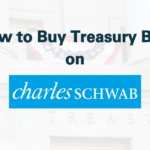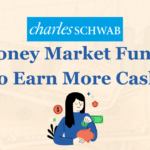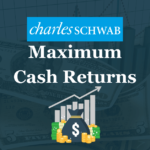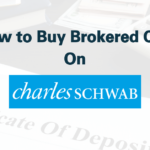What are the top Charles Schwab CD rates, and how do they compare to other brokered CDs? Below, you will find the top yields for Charles Schwab CDs in May 2024. Charles Schwab CD rates can often change, so we suggest looking at Charles Schwab’s website for the most real-time information.
Charles Schwab CD Rates
Charles Schwab offers brokered certificates of deposit (brokered CDs), which are CDs that can only be bought by brokerage customers. Brokered CDs are similar to standard bank-issued CDs, but bought on a brokerage instead of from the issuing bank. Charles Schwab does not issue these CDs. Instead, they provide both newly issued CDs from different banks and CDs resold by other investors on a secondary market.
The following table displays the top Charles Schwab CD rates per maturity term for new issue CDs in Charles Schwab’s marketplace*:
APYs shown are as of May 3, 2024. Click to expand on mobile.
*Note: Charles Schwab CD rates can change. YieldAlley suggests checking Charles Schwab’s website for the latest information.
🚨 You should know…
Schwab also offers money market funds, Treasury bills, and Treasury ETFs. These cash yields can be higher than what brokered CDs offer.
Compare the Latest Schwab RatesBuying CDs on Charles Schwab
- Charles Schwab Account Required: To buy brokered CDs on Charles Schwab, you must have a brokerage account with Charles Schwab.
- Fee for buying new-issue CDs: None.
- Fee for secondary CDs: Charles Schwab charges a $1 fee per CD for secondary trades online, with a $10 minimum fee and a $250 maximum.
- Minimum investment per New-Issue CD: $1,000. You can buy more new-issue CDs in increments of $1,000.
- FDIC Insurance: Yes. Charles Schwab’s brokered CDs offer FDIC insurance of $250,000 per bank per depositor. For example, you have expanded FDIC coverage if you buy three CDs on Charles Schwab from three banks up to $750,000.
Charles Schwab CD Fees and Key Information
Frequency of Interest Payments: It depends. The frequency of interest payments on Charles Schwab varies depending on the CD. CDs that have a maturity period of less than 1 year typically pay interest only when they mature. For 1-year CDs, interest is usually also paid only when they mature, although some may pay interest every six months. However, for CDs with longer maturity periods of 18 months or more, interest is usually paid every six months, every three months, or every month.
Monthly Fees: None. This is common for CDs.
Compounding: None. Brokered certificates of deposit (CDs) accumulate simple interest, while CDs offered by banks accrue compound interest. With brokered CDs, the interest earned remains constant throughout the duration of the CD, as opposed to increasing with a bank CD.
Early Withdrawal Penalty: None. With Charles Schwab brokered CDs, there are no early redemption fees like there are for bank-issued CDs, but trading a brokered CD on the secondary market means you may receive less than the original purchase price.
Auto-Rollover: Yes. Charles Schwab offers an Auto-Rollover Service, which will reinvest your CD when it reaches its maturity date. A different bank may provide a new CD than the one that issued the original CD. An alternative to the auto-rollver is to utilize a CD ladder strategy, which is a portfolio of CDs with staggered maturities.
Charles Schwab IRA CD: Yes. If you have an IRA account with Charles Schwab, you can use that IRA to buy brokered CDs.
Types of CDs Offered By Charles Schwab
New Issue CDs: When a bank or financial institution introduces a new investment opportunity to the public, they may issue a new issue CD. This certificate of deposit has a set duration and rate of interest, enabling investors to earn guaranteed profits on their investment for a designated timeframe.
Secondary CDs: A secondary CD is purchased on the secondary market from an existing owner. This allows investors to buy or sell a CD before its maturity date.
Callable CDs: A callable CD gives the issuing bank the option to call back the CD before the end of its maturity date. This means that the bank can redeem the CD early, usually after a specific period of time or on set dates. This feature generally is used when the bank wants to take advantage of lower interest rates.
Non-Callable CDs: A non-callable CD cannot be recalled by the issuer before its maturity date. This means that once you invest in a non-callable CD, the issuer cannot call it back or return your money until the agreed-upon maturity period. This makes non-callable CDs a more secure and predictable investment option.
Why is My Charles Schwab CD Losing Money?
If your CD appears to lose money, it could be due to rising interest rates and your Charles Schwab CD rates are now lower than the current interest rate. However, holding your CD until maturity means you will be guaranteed your original principal upon maturity, plus your interest payments.
We recommend ignoring any fluctuation in the CD value if you plan on holding your CD to maturity.
Charles Schwab Cash Equivalents and Other Offerings
Cash equivalents are “as good as cash” investments regarding their liquidity and reliability. They are short-term, highly liquid investments readily convertible to known amounts of cash and usually considered virtually risk-free. These are typically investments with a short maturity period of 90 days or less.
Some examples include short-term CDs, money market funds, and Treasury bills. Charles Schwab offers a wide variety of these products.
I’ve Reviewed the Charles Schwab CD Rates. Are These CDs Right for Me?
After reviewing the CD rates from Charles Schwab, it’s important to determine if these CDs align well with your financial goals and circumstances.
What are some considerations that might be relevant to you?
20-30 years of age: Typically, individuals in this age bracket are beginning their careers and may be more willing to take on risks. They might lean towards growth investments like stocks or mutual funds, which can offer higher returns over a long period. However, if they’re saving for a short-term objective (such as a house down payment), a CD could be a viable option.
30-50 years of age: People in this age range might juggle various financial objectives, like retirement savings, funding their children’s education, or buying a home. CDs could form part of their investment portfolio for specific short-term goals or as a low-risk element of their broader investment strategy.
50-60 years of age: As people get closer to retirement, they may lean towards more conservative investments to protect their capital. CDs can be a suitable choice in this scenario, particularly if the current interest rates are attractive.
60 and above: For those in retirement or nearing it, CDs can offer a reliable income source and help preserve capital. It might also be worth considering a CD ladder to benefit from CD rates while maintaining regular access to cash from maturing CDs.
In times of fluctuating interest rates, CDs provide the opportunity to secure a guaranteed return. It’s also worth exploring other cash equivalents like Schwab’s money market funds. While money market funds don’t offer guaranteed rates like Charles Schwab CDs, they generally provide more flexibility and liquidity. Schwab U.S. Treasury money market funds like SNSXX offer state tax benefits that CDs do not.






